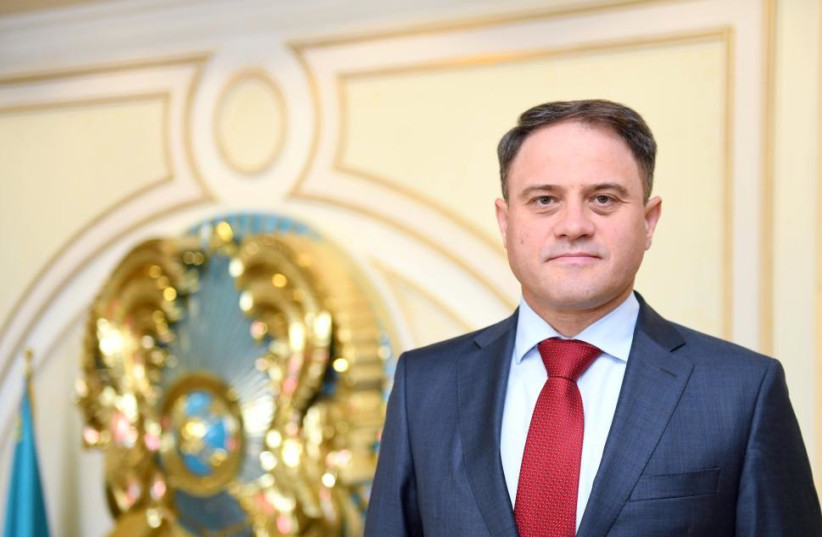On Sunday, when the people of Kazakhstan voted in a historic referendum and decided to amend one-third of the articles of the country’s constitution, a New Kazakhstan was born: The Second Republic of Kazakhstan.
This deep but evolutionary change was conceived a few months ago by President Kassym-Jomart Tokayev, after the January 2022 tragic events in our country. We are still recovering from those wounds, while fully committed to learning the lessons, addressing challenges, and moving forward.
Against the background of the ongoing conflict in Ukraine, which forces huge economic turbulence on the Central Asia region, Kazakhstan has made a very clear choice to open up to wider cooperation with the global markets, play a greater role in international democratic institutions, and, to underpin all this, implement wide-ranging constitutional reforms in the country.
Reforms
In March 2022, Kazakhstan’s president proposed landmark reforms, which would not only limit his own powers but transform the country’s parliament, emboldening it with greater authority and power. The reforms were designed to address the socio-economic and civic grievances voiced by Kazakhstan’s citizens.
Since then, our country is rapidly embarking on an unprecedented route of democratization, modernization and decentralization. The reforms, which will now tailwind the fresh amendments to the constitution, will enhance checks and balances; strengthen the parliament and the akims (governors) of cities and districts; and create legal and law-enforcement bases for an uncompromising struggle against corruption and nepotism.

The Kazakh culture and heritage are first and foremost tolerant, welcoming, and peace-loving. Our long-lasting warm relations with Israel and the Jewish people are alike. The history of the Jews in Kazakhstan connects back to the Bukharan and Juhuro Mountain Jews.
During World War II, more than 8,000 Jews were evacuated to Kazakhstan between August 1941 and January 1942; they were embraced by the Kazakhs with open arms, and until this day, there is no antisemitism in Kazakhstan.
Our diplomatic and bilateral relations with Israel were established on April 10, 1992, less than four months after Kazakhstan became independent, and remain close and strong ever since.
Now we are entering a new phase in Kazakhstan’s democratic transformation. Key governmental bodies, such as the Office of the President, the Parliament, local administrations, as well as the law enforcement system, will be thoroughly reformed.
Barriers to the formation of new political parties will be eased, providing for political diversity. A new Constitutional Court will be created, increasing the strength and the transparency of the judiciary.
On Sunday, the citizens of Kazakhstan went to the polls and voted “yes” for the creation of a New Kazakhstan, which according to our president, means, first and foremost, a fair Kazakhstan. This was a celebration of democracy, in our great country, the ninth-largest in the world.
It was the first referendum in Kazakhstan in 27 years, and it did not happen by chance: President Tokayev has listened carefully to civil society and public opinion when designing these reforms and amendments to the constitution.
From now on, the tremendous wealth accumulated by oligarchs will be redirected toward the working people and the middle classes. The government has been tasked to develop immediate programs to increase wages and reduce poverty. Small businesses will see their tax burdens shrink, while Kazakhstan’s extractive monopolies will shoulder a much larger share of the economic burden.
President Tokayev described the core vision of New Kazakhstan in his own words: “The amendments to the constitution will open a new chapter in the history of independent Kazakhstan. This is an important milestone in the construction of New Kazakhstan.
“The political meaning of the constitutional reforms is the constitutionalization of the Second Republic of Kazakhstan – with the aim of shifting from a super presidential to a presidential form of government. Under the new paradigm, the powers of the president are being reduced, the role of parliament and districts is being significantly strengthened, citizen participation is being substantially expanded, and the human rights sphere is being systematically strengthened”.
As we engage in these momentous developments, we also look forward to working ever closer together with our good international partners, such as Israel.
The writer is the deputy minister of foreign affairs of the Republic of Kazakhstan.
